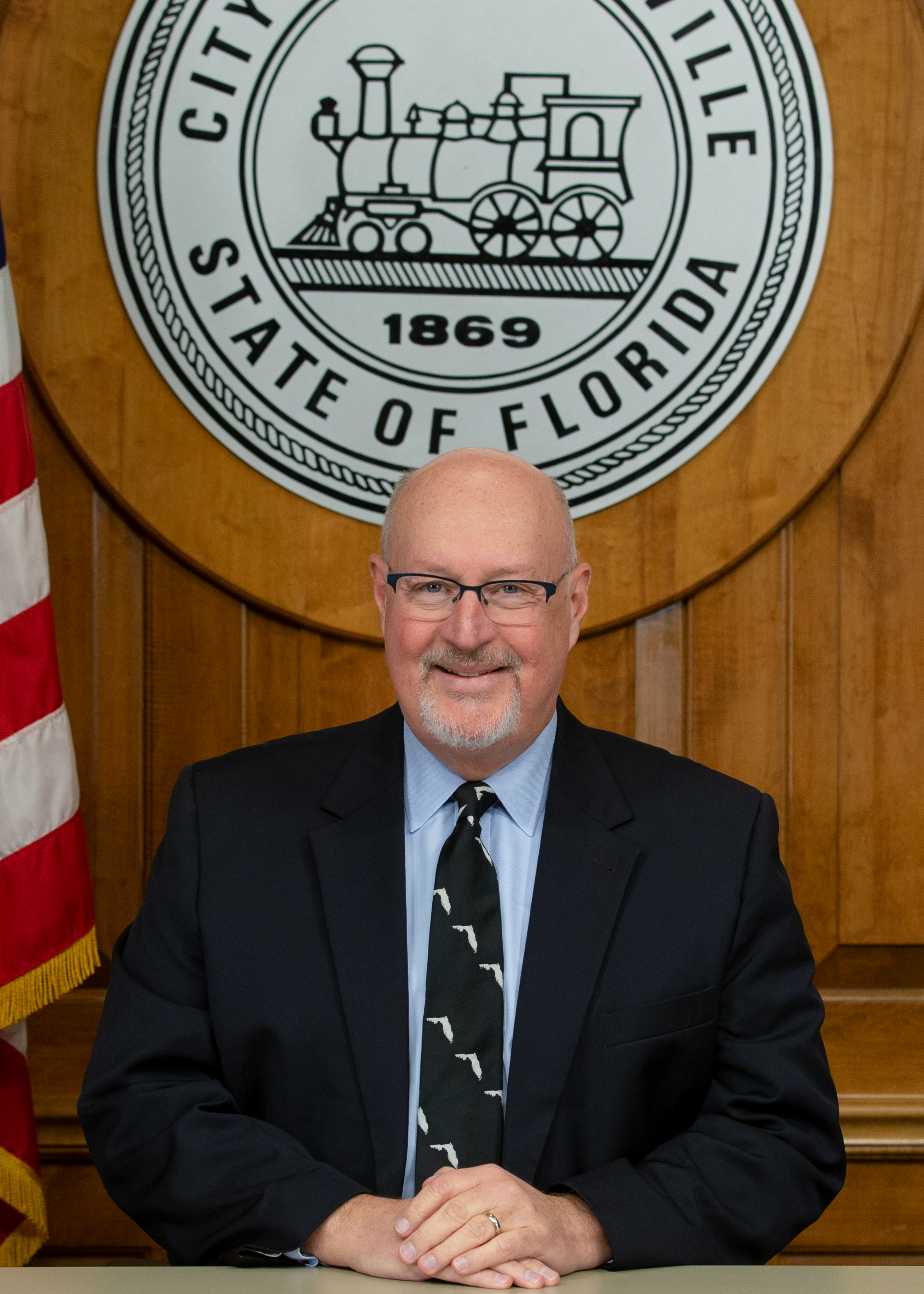Gainesville is a city of contrasts—a place where history meets innovation, where local businesses thrive alongside national chains, and where growth is carefully measured against the fabric of community values. Mayor Harvey Ward is at the center of this evolving landscape, balancing economic development with responsible city planning. The Mayor is actively working with the city to reshape how Gainesville approaches commercial real estate, workforce housing, and business expansion.
From Community Advocate to City Leader
Before stepping into public office, Harvey Ward was already deeply engaged in Gainesville’s commercial scene. As the Executive director of Holy Trinity Episcopal Foundation’s commercial properties, he witnessed firsthand the struggles small businesses and nonprofit organizations faced in securing and maintaining spaces. It was during this time that he became directly involved in homeless services and urban planning, two issues that ultimately shaped his vision for Gainesville.
“I ran for public office because I saw areas where local government could and should do better,” Ward explained. “One of those was homelessness. Ten years ago, we had over 100 people sleeping in the open at Bo Diddley Plaza. I knew we could do better, and today, Gainesville is leading the way in providing homeless services, to the point where other cities—Tallahassee, Pensacola, and others—look to us for guidance.”
After an unsuccessful bid for county commissioner in 2014, Ward learned the intricacies of running and winning elections. In 2017, he was elected city commissioner, serving two terms before running for mayor in 2022. Out of nine candidates, he emerged victorious, stepping into leadership during a critical period for Gainesville’s economic and commercial growth.
Downtown Gainesville: A Hub of Opportunity & Untapped Potential
Gainesville’s downtown district is one of the most dynamic commercial ecosystems in North Florida, operating across three distinct economies:
- Daytime Economy: Office workers frequent restaurants, coffee shops, and service-based businesses.
- Evening Economy: The dinner and entertainment scene flourishes with local dining, live music, breweries, the Hippodrome, Florida Theater, etc. among other options.
- Late-Night Economy: Gainesville’s student-driven bar and club culture keeps the city buzzing into the early hours.
Despite this vibrancy, vacancies persist, and there is a lingering perception that Gainesville is difficult for businesses. Ward is working to change that.
“Gainesville has a bad habit of underestimating itself,” he said. “We compare ourselves to bigger cities and assume we’re not doing enough, but when I meet with mayors from across the country, they’re amazed at what we have here. Our downtown is thriving compared to other cities our size.”
Ward believes that while Gainesville has mastered restaurants, bars, and entertainment, the missing puzzle piece is retail.
“I would love to see more brick-and-mortar retail downtown,” he emphasized. “We don’t need a Best Buy or big-box stores, but boutique retailers, local brands, and small businesses would thrive here. There’s already proof of concept—just look at places like Butler Plaza and Celebration Pointe, which are marketed effectively as shopping and entertainment destinations. We need to do the same for downtown.”
Commercial Real Estate & Business Investment: The Next Big Step
Ward sees Gainesville’s commercial future as a mix of smart zoning policies, investment in workforce housing, and strategic real estate decisions. Some of the city’s most notable developments include:
1. The Scruggs & Carmichael Building – A Permanent Vendor Marketplace
One of Ward’s ideas is to transform the Scruggs & Carmichael Building (1 SE 1st Ave) into a dedicated vendor market. Gainesville has a strong presence of pop-up markets, vintage fairs, and artisan showcases, but lacks a permanent home for these businesses.
“We host incredible vendor markets every few months, but why not give them a year-round space?” Ward asked. “With 1,800 – 8,320 SF available downtown, this location is within walking distance of major retailers and restaurants. We could create a vendor marketplace where artists, makers, and small businesses have a consistent presence, rather than only during weekend events.”
The idea aligns with Gainesville’s cultural identity—a city known for its art, music, and local entrepreneurship.
2. Lot 10 – Proving the Demand for Downtown Residential Growth
Another key development Ward supports is Lot 10, a planned residential buildout between SW 1st and SW 2nd Avenue.
“There’s enormous pent-up demand for good residential options downtown,” Ward said. “The challenge is proving that to lenders and investors. But if we get the right project off the ground, it will be snapped up in no time.”
He pointed to Union Street Station and other mixed-use developments as proof that downtown living is not only viable but highly desirable.
3. The Ambassador Program – Cleaning Up & Revitalizing Downtown
Perhaps one of the most visible changes under Ward’s tenure is the implementation of the Ambassador Program, which employs uniformed workers to clean streets, assist visitors, and enhance the downtown experience.
“This isn’t a homelessness program,” Ward clarified. “It’s about making downtown more inviting and functional. I’ve had people who don’t even support me politically tell me they love the program. It’s making an impact, and that’s what matters.”
With 14 ambassadors covering downtown, their presence has led to cleaner streets, improved safety, and an overall better experience for residents and visitors alike.
The Road Ahead: Marketing Gainesville as a Business Destination
Ward believes one of Gainesville’s biggest gaps is the lack of dedicated business promotion.
“Butler Plaza and Celebration Pointe have marketing teams. Who’s marketing downtown Gainesville?” Ward asked. “There needs to be a dedicated effort—whether through private organizations, real estate groups, or economic development boards—to sell downtown Gainesville as a business destination.”
The goal is to change the perception that Gainesville is a difficult market and instead position it as a thriving, business-friendly city with ample opportunities for growth.
Final Thoughts: A Legacy of Growth & Investment
With less than two years left in his current term, Ward is focused on ensuring that Gainesville’s commercial momentum continues beyond his time in office.
“I can be Gainesville’s biggest cheerleader, but it can’t stop with me,” he said. “We need lasting momentum. We need businesses, investors, and residents to see the bigger picture and work together to build something great.”
With investments in housing, commercial real estate, infrastructure, and business incentives, Gainesville is on the verge of a commercial renaissance—and Ward is determined to make sure it happens.
“This city has all the right pieces. Now we just need to put them together.”

